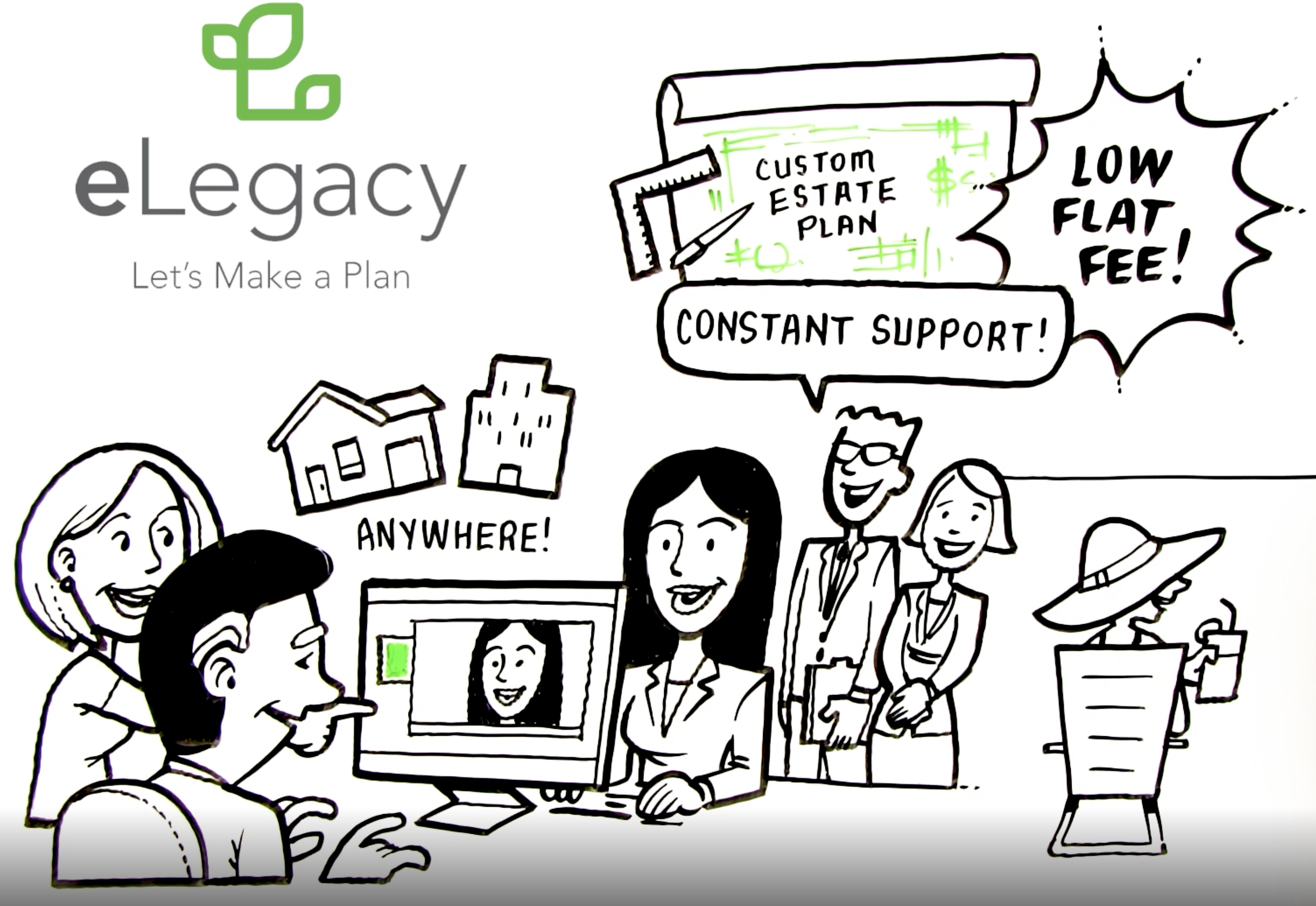Estate Plans
Get started planning for your future today
Our Solutions
![]()
Our goal is to provide comprehensive estate planning solutions that carry out your wishes with maximum efficiency and minimal expense. For some, a Will is sufficient. For many, a Living Trust is the preferred vehicle for passing on their legacy.
All of our estate plans, whether will-based or trust-based, contain a suite of essential documents for incapacity planning and healthcare decision making. These include financial and healthcare powers of attorney, medical directives, and other important documents.


Trust-Based Plans
![]()
Trusts have become an increasingly popular alternative to wills over the past few decades, in large part due to the high costs of probate. Trusts perform the same basic functions as a will, only better. For most people, a trust can facilitate a faster, more efficient, and less expensive administration of their estates.
Trusts require more effort to create than wills because trusts must be fully “funded” in order to work properly. “Funding” refers to the process of titling assets in the name of your trust.
Learn about the Trust Funding Process
Creating and signing a trust document is only half of the process. From there, a trust must be fully “funded” in order to function properly. “Funding the trust” refers to the process of titling assets like bank accounts, vehicles, and deeds to real property in the name of the trust. Neglecting this important step may entirely defeat one of the primary purposes of the trust: to avoid probate.
With eLegacy helping you through the funding process, you can rest assured that your trust will function as you’ve intended.
Will-Based Plans
![]()
A Will is a document that only goes into effect when you die. It names your executor, heirs, guardians for minor children, and instructions for distribution of property.
Wills are generally less expensive than trusts to implement, but they often result in a probate proceeding after death and other delays and expenses, meaning they can end up costing more in the end. Probate is a court process that can take months or years to complete and can easily cost tens of thousands of dollars, even for modest-sized estates.


Keeping Your Plan Up to Date
with Lasting Legacy
![]()
In the coming years, there may be changes in your assets, family, or personal circumstances. There may also be changes to state or federal laws that could affect your plan. It is very important to keep your plan up to date so that your goals will be carried out.
To help you do this, we are proud to offer our Lasting Legacy plan:
- 50% discount on all plan updates (amendments, codicils, restatements)
- Annual meeting with your attorney up to 1.5 hours. (Normally billed at $300/hr.)
- Ongoing access to your client document vault.
- Exclusive content: Legal updates and trends, Lasting Legacy newsletter, exclusive live webinars and prerecorded content.
- Front of the line support: Have your estate planning related questions answered quickly with continuous access to your support team.
- Annual asset reviews to ensure your trust remains funded and fully functional
We will work with you to find what solution is best for you!
Wills vs Trusts
![]()

Still have questions?
![]()
What is the difference between a Will and a Trust?
With a Will, your instructions are carried out by an Executor or Personal Representative, often in connection with a probate proceeding (the court-supervised process of administering an estate).
With a Trust, your instructions are carried out by a Successor Trustee, typically without the need for costly or time-consuming probate proceedings.
How does a Trust work?
A trust is a distinct, legal entity that’s designed to hold your assets. Each trust has a unique name (for example, “The John and Jane Doe Living Trust dated January 1, 2020”), and when your trust is created, assets like bank accounts, real properties, and investments are re-titled into this name.
During your lifetime, you are the trustee of the trust as well as the beneficiary – meaning you still have complete control of your assets. From your perspective, nothing really changes other than the name that appears on your account title or property deed.
In your trust document you’ve named one or more Successor Trustees that can take over if you are incapacitated or deceased. You’ve also left instructions for how assets are to be managed and distributed to your beneficiaries after you die. The trust is revocable and amendable by you, meaning you can adapt it as your goals, concerns, and life circumstances change.
Because your property is titled in the name of your trust entity (and not your individual name), no public legal proceedings are required to gain access to these assets and administer your affairs. All of that is handled within the trust, which means the process stays private, informal, cost effective, and time efficient.
What are the benefits of a Trust?
If the goal of estate planning is to provide an orderly, timely, and inexpensive administration of your affairs, then for most people a Trust is the best vehicle to get them there.
Trusts can cut out time-consuming and expensive court processes like probates and guardianships. And they make it much easier for your trusted agents to quickly step in after a death, accident, or illness.
The administration of a trust is also informal and private, as opposed to probates, which are public record. This means your personal affairs are kept safe from prying eyes and curiosity seekers.
Trusts are also a better tool when planning for beneficiaries with unique needs, such as: physical or mental disabilities, poor spending habits, financial inexperience, unstable marriages, or creditor issues.
In summary, trusts are generally more efficient and can eliminate significant financial and emotional burdens for your loved ones at a time when they are trying to cope with your death or illness.
Are Trusts more expensive than a Will?
Trusts are generally more expensive than Wills to setup. However, because trusts can avoid probate and other court proceedings, they will typically save you and your heirs tens of thousands of dollars in administrative expenses. (For example, the average costs of probate nationwide range from 2 – 7% of your total net worth.)
For most, using a trust can offer a significant return on investment, for just a modest increase in price. At eLegacy, we won’t recommend a trust unless we are confident it will save your estate money in the long run.
We will work with you to find what solution is best for you!
